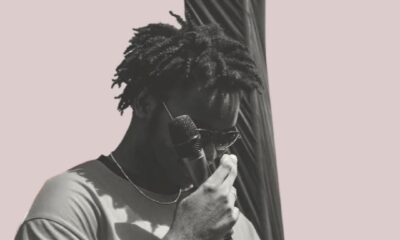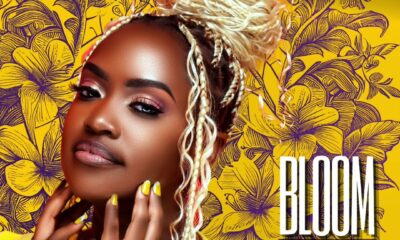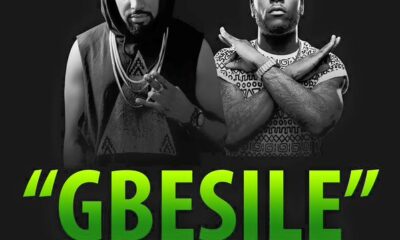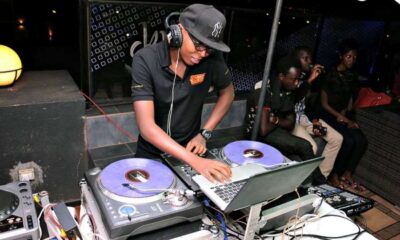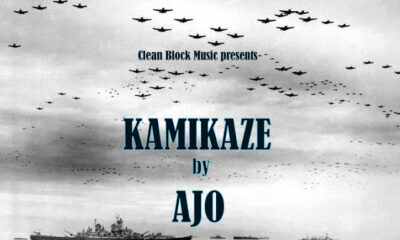INTERVIEWS
EXCLUSIVE INTERVIEW: A Chat With Grammy Award Winning Producer Brian Soko.
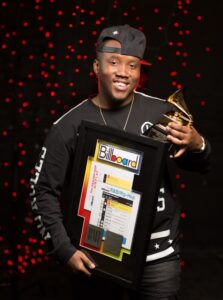
When it comes to movies/the silver screen, youths on the continent have people like Lupita Nyong’O, Trevor Noah and in sports there’s people like Stephen Kiprotich the Olympic golden medal winner but when it comes to music (hip-hop/RnB) there’s people like Brian Soko, these are people whose success stories will make you to continue holding on to your dream till you’ve an Oscar or Grammy like Brian Soko sitting somewhere in your crib.Brian is a 24 year old from Zimbabwe whom after 8 years of production and almost after making 1500+ beats, his hustle has started making sense like the way he puts though to some of us with his Grammy he seems to have gotten it all.
I managed to chop it up with the Tampa, Florida based producer and we discussed a couple of topics like the challenges in the music business, how he stays motivated (hungry) even after achieving all those awards, how his company “Anashe Media Group” handles music business on the continent among other things as you can read below.
Twitter: @beatsbySoko
Instagram: @Beatsbysoko
Contact writer;
Facebook: Byaruhanga Felix FeliFed
Twitter: @TheNinjaFelix
Email: theninjafelix@gmail.com
Interview
Mitch Isabirye on Poetry, Collaboration, and Culture: The Story Behind ‘Poetry in Motion EP’

Mitch Isabirye is a name that resonates deeply within Uganda’s spoken word community. A masterful storyteller and an ardent collaborator, his work has earned him a reputation as a poet who not only creates but also nurtures and uplifts the creative ecosystem around him. His latest contribution, a poem titled “Mother’s Land” on the Poetry in Motion EP alongside Maritza, is a testament to his artistry and the power of collaboration.
For Mitch, his involvement in the project was a result of years of consistency and dedication to his craft. “Hard work and consistency come naturally to me,” he says. “People connect with authenticity and a strong brand. The Tribe just reached out to me. I’m a collaborator by nature, so it made sense to be part of it.”
That openness to collaboration is a key part of Mitch’s journey. While his work often speaks for itself, he acknowledges the importance of social capital in the creative industry. “Sometimes the work alone is not enough. You have to be open to ideas, talk to people, and build relationships. We are in the business of social capital. People approach me not just because they know my work, but also because they know me personally. That made it easier for The Tribe to reach out.”
The Poetry in Motion EP was designed as a collaborative effort, pairing artists based on their strengths and storytelling approaches. Mitch was paired with Maritza, a poet whose methodical and research-driven style complemented his more spontaneous, in-the-moment approach. “I usually write in the studio. Maritza, on the other hand, is very structured and does deep research. We met a few times, discussed our concept, and she came back with everything structured. I then added my parts in the studio, complementing her work rather than changing it. The result was a seamless blend of our styles.”
Despite its ambitious scope, the EP comprises only four tracks—a decision driven by the producers. “To be honest, for something this big, four tracks feel like a disservice,” Mitch admits. “But it comes down to resources, time, and the overall vision of the producers.”
One of the central themes of the EP is migration and globalization, which naturally led to a discussion about culture and identity. For Mitch, culture is not static. “We have to appreciate that culture evolves. It can go extinct, be integrated, or even colonized. What matters is that creatives continue to play their part in preserving it. Even if your work impacts just one or two people, you’ve done something meaningful. Our identities can be passed down through our stories. People listen; it’s just a matter of what they choose to engage with.”
Spoken word, in particular, holds a unique place in cultural preservation. Mitch sees it as a continuation of African oral traditions. “Spoken word has always been part of African culture—people sitting around a fire, passing down stories and knowledge. It’s one of the oldest art forms, and it’s deeply embedded in our identity. What better way to keep that tradition alive?”
However, spoken word remains a niche art form, and expanding its reach is a shared responsibility between artists and platforms. “As an artist, I do what I can with my platform. But the question I always ask mainstream platforms is: What are you doing to amplify spoken word? It’s a collective effort.”
Looking ahead, Mitch continues to explore new artistic avenues. “I’m always collaborating. Right now, I’m working on a project with a visual artist. It’s something we’ve been developing for a while. I always have concepts coming to me.”
His journey as a poet has been largely self-taught, shaped by experience and observation. “Life keeps teaching me. I learn by watching others. I’ve attended workshops, conferences, and festivals, but my formal background is actually in science.”
On the question of making a living as an artist, Mitch is pragmatic. “This is what they don’t tell you: You need a hustle that supports the artist before the artist can support the hustle. People don’t pay for talent—they pay for the brand behind the artist. So, build a brand, and the opportunities will follow.”
As for what’s next, Mitch has something special in store for his audience. “I have a show coming up soon called Mitch’s Manifest. Watch out for it.”
Interview
Maritza on Breaking Continental Barriers with Spoken Word EP ‘Poetry in Motion’

When it comes to spoken word in Uganda, one of the names that you won’t miss is Maritza, a.k.a. Mama KLA. She has left a mark through her words and performances on the industry with works like her thought-provoking 20 Point Program poem, the intro on The Mith’s Ugandan album & the intro to DJ Chapat’s mixes, among others. She has now set her eye on the continent, having won Spoken Word Artist of the Year at the African Podcast & Voice Awards last year and now featuring in the Move Africa campaign by GIZ, the African Union, and Africa NoFilter through poetry. The campaign aims to reshape and enrich African media migration narratives, moving away from the current mainly crisis-centered stories to more balanced depictions.
The Tribe UG chose to explore this theme through a poetry EP titled Poetry in Motion, featuring a collective of Ugandan poets, whom we will be talking to as we lead up to the release of the EP on February 4, 2025. Poetry in Motion was made possible through the support of Africa No Filter, a sponsored project of Rockefeller Philanthropy Advisors, with funding provided by GIZ on behalf of the Government of the Federal Republic of Germany.
In this interview, we delve into the creative process behind the EP, the nuances of spoken word as an art form in Uganda, and the career trajectory of Maritza herself.
Maritza, you’ve been deeply involved in the spoken word scene and are actively trying to make a space for it in music. How did you get involved in the “Move Africa” project and how did that lead to the creation of the “Poetry in Motion” EP?
Maritza: Spoken Word can be misplaced, you know. Sometimes Spoken Word is in the literary community, but then it’s too cool to be in the literary community. Other times, you want to place it in more educational circles, but then sometimes it doesn’t really fit. In hip-hop, though, spoken word has a real place, and I felt that in Uganda, we hadn’t opened the door. Hip-hop and music hadn’t opened the door for spoken word like that. That’s why I’ve really been trying to work with The Tribe—getting together on projects, having conversations, and just putting things together. That’s how Poetry in Motion happened.
Felix found where we could find partners & funding to create a project with spoken word artists that we can attach to The Tribe UG. The art of spoken word is deeply rooted in the culture of hip-hop, because hip-hop has a background in spoken word. Artists like Gil Scott-Heron—though he’s not strictly a hip-hop artist—are spoken word artists, and most of his work is really spoken word.
The main reason I’m here with The Tribe is to push for that: to make space for spoken word in music. When Felix found this opportunity to partner with Africa No Filter, we put our heads together to figure out what we could do and which artists would be best for the project. We looked for artists who have already written socially conscious pieces.
This was the chance to involve Ugandan spoken word artists who are very good at this. There are many, of course—these are just the ones we could access. Off the top of my head, I thought of people like Kabera Angel. Kabera Angel is a soet – a song poet, and she was the first person that came to mind because she’s been making waves in the industry. Another person, who needs no introduction, is Wake 256. Wake is one of our leaders in this business—he’s the godfather, take a bow, salute! Another godfather in this is Isabirye Mitch, who was really a no-brainer. He’s exceptionally good with his play on words and his delivery, and he truly represents where he’s from.
It was important, especially for this conversation, because it was about migration narratives. That’s the real goal: to change the conversation on migration narratives. It’s the kind of topic that makes you ask why we’re fighting these things. This is Africa, so why do we have borders to the point that I have to beg for a Tanzanian visa just to visit my neighbors? It was something that was a no-brainer to contribute to.
So we thought of these artists: Kabera Angel, Wake, Isabirye Mitch, Jason Ntaro, Devis the Poet, Mcnrietta, and myself. That makes eight. Wait, did I miss somebody? I can’t miss anybody. Oh, and then another person—I almost forgot. Mcnrietta usually writes in Luganda, and she’s actually one of the best Luganda poets we have in the country. She writes beautifully, and she did an amazing track with Wake. Those artists came to mind because they have a strong voice, they write beautifully, and this is a narrative they’d love to be part of. We all want to grow as spoken word artists; we want to be international at some point, so joining this project was obvious.
Felix and I got together to figure out which people would be best suited and how to incorporate the themes we were given. Using my spoken word brain, I suggested some themes we could explore in this conversation. We submitted them, they were accepted, and we were able to get funding support from GIZ (on behalf of the Gemany Government), & partner with Africa No Filter & the African Union. So far, we’ve recorded all four tracks—though we’re still editing—and I’m proud of what we have. I think Felix and I chose well, and I’m really happy with what we are doing with it.
Yes, you all have done well. I’ve had a bit of early access to the tracks that’s ready – and it’s really good work. However, do you think the audience is ready for a product like this?
Maritza: We will make you get there. Pardon me—yes, we will make you get there, and that’s the real goal of this project. The thing about audiences is that they’re always ready for something beautiful, something groundbreaking that introduces them to another form of enjoyment. Even hip-hop took convincing, for some people at first, and that’s why it merged with certain genres, brought in R&B, and kept evolving over the decades. That evolution—like how LL Cool J used to rap, or how Jay-Z used to rap before he was Jigga—completely changed and adapted to different audiences.
So the audience might take time to be convinced about the work we’re doing, but when it’s good, and if you pay attention online—especially for artists like Isabirye Mitch and Wake, who have a strong online presence—when the art is top-notch, people have no choice but to pay attention. In fact, they’ll start looking for us (laughs).
I think that’s the hope with this project. If you listen, especially to the track with Wake and Mcnrietta, it doesn’t matter where you’re from or who you are—that track is a vibe. It’s well delivered, with drums and everything packaged so you can’t escape it. That kind of production in spoken word will definitely draw more eyes and attention. The more we package our work to make it easier and more accessible, the larger our audience becomes.
The problem is that spoken word doesn’t always get much investment, so we don’t often see well-produced products. That’s why this opportunity is great, especially with the best spoken word artists represented. We’ll see how we do, but I’m sticking with that idea that we’ll bring people in. It will show that there’s potential, and the art is good, you know, it won’t be negotiable anymore. So we really just have to keep doing this. And the consistency, I know, is what’s going to allow my dream of, you know, having spoken word, to have a proper place in the hip hop culture. That’s what’s going to allow that dream to happen.
The EP’s production is really good. One can definitely tell there was a lot of effort put into it. Who handled that? What were the sessions like?
Maritza: That is all Wake on the track!
So, I think Kabera Angel did play the guitar for her track, and she might play it again because they’re doing a re-record. She’s quite skilled on the guitar. If you’ve seen her TikToks, she’s a vibe, right? Let me tell you, people aren’t going to escape us now that we have someone like Kabera.
I also play the Akogo—the thumb piano—for the “Mother’s Land” track, so we as instrumentalists just contributed and let the producer do his magic. When Wake sat down at that computer—whoo, child—it was incredible. He did beautiful things. I love what he’s done. Even the track that’s being used in the promo was built from scratch while we watched the magic happen!
Our country is lucky to have the kind of multicultural diversity it has. Has the scene given a platform to enough artists from different cultural backgrounds?
Maritza: I’m always on the lookout, and the good thing about being in the poetry space as long as I have is that I’ve rubbed shoulders with some great vernacular writers. We’ve had the Bakiga on stage. There was a guy who was called The Man Eater—I think he was Ugly MC, the Man Eater—and he used to do Lusoga and Luganda as well. Then there’s Mitch, who really kills it with Lusoga, and Wake does it with Lugwere. You have that.
And there’s Mcnrietta. How Mcnrietta made her name is that she doesn’t dabble in English and Luganda; she’s a Luganda poet. I think there’s also Ssebo Lule — these artists fully represent their roots, talking about their experiences in their mother tongue. They don’t speak “city Luganda”; they speak the cultural language. If you’re not from there, some parts might go over your head, but they’ve done a great job showing how you can have a very entertaining track by using the cadences and rhythms of your language. They take advantage of that. If you hear “Webale,” you can hear the flow, the wordplay, the excitement.
I see it as a gift to be able to write like that in your language.
And when you do it in your local language, the audience gets bigger. I’m restricted to English audiences because I can’t write in my mother tongue, yet I speak it pretty decently. But being able to express yourself in your mother tongue is a real gift for those of us who grew up on English. It’s something I want to see more of, and I’m taking it upon myself to learn how to write in my mother tongue. Hopefully, in my older years, I can be that wise poet of the village (laughs).
We have to be deliberate about this because we live in a culture where people don’t have time to teach their kids their language. Many parents themselves don’t know their mother tongue, so it’s really up to the artists.
If you notice in hip-hop lately, even among English-speaking rappers and some singers in the hip-hop scene, they’re now incorporating more of their mother tongue. You see it with Ninja C’s songs last year. She has tracks like “Speak My Language.” Even The Mith last year came out with “Don’t Worry” and introduced something—his audience was like, “Wait, who’s this?” It’s become a deliberate move to represent our roots and remind people that we can express ourselves in our mother tongue. It’s an option we have; we just need to learn it.
So, in a really cool way, all this plays into the theme of what you guys are doing with the project, right? Globalization is happening right before our eyes—in spite of all the chaos surrounding migration. People still want to connect with others from the opposite side of the world. And it’s going to happen—one way or another.
How do we blend with the rest of the world while keeping our identity?
Maritza: I think it starts with what Agenda 2063 is really pushing for. Once the borders within Africa become more blurred—because right now, they’re way too solid—it’ll create room for a more unified identity. You know, it’s still really hard to move freely within Africa. For example, if you go to Kenya and try to get a job, it’s difficult because you’re not Kenyan. Companies there hiring Ugandans have to prove to the government that there’s no Kenyan available for the job. That’s a tough barrier to break. Sure, you can find ways around it, but that’s the current culture.
I feel like once we make the borders less rigid and allow ourselves to move, settle, and work freely in other parts of Africa, we’ll see beautiful things happen. For example, I honestly believe that Zambia and Uganda could blend beautifully. If the borders were more fluid, the cultures would mix seamlessly.
And, you know, these borders weren’t drawn by us; they were imposed during the scramble for Africa. A lot of what defines the continent today was decided without our input. Once we take responsibility for our own development and embrace each other as Africans, we won’t have to worry so much about competing with the rest of the world.
Look at how people outside Africa gravitate toward our culture. Beyoncé, for example, once shifted her entire production team to Africa just to tap into that richness. We are the source of so much inspiration and value. If we do the work for ourselves and each other, we won’t need to chase after the world—they’ll come to us.
There are already Africans in every corner of the world. If we strengthen our connection to those diaspora communities, they’ll stay grounded and connected to home. Right now, it’s a lot of work to even find African talent. Say you’re looking for an artist—you first have to Google their name, search for their work, and dig through layers of obscurity.
But imagine if that work was in plain sight—on mainstream radio, TV, or even TikTok ads. Imagine seeing a spoken word artist promoting a major brand like Stanbic Bank. Once we get to that level, we won’t have to convince anyone about our value. People will naturally gravitate toward African art, culture, and innovation.
This kind of visibility becomes much easier when we accept and uplift one another. That’s really what Agenda 2063 aims for—labor mobility and cultural exchange across Africa. I honestly believe that free movement does more good than harm. It encourages innovation, collaboration, and growth.
I don’t know if by 2063 we’ll have achieved all the goals, but that’s the vision. We can’t become a global powerhouse without first empowering Africa. If you want to be an international star, you’ve got to win over your home first.
I’m one of those people who believe Africa is a country—even if metaphorically speaking. It’s okay to think of us that way because, deep down, we really are one people.
To bring it back to the project, who are we really speaking to here?
Maritza: We’re talking to music fans, we’re talking to poetry fans, we’re talking to hip-hop fans, and then we’re talking to Africans. And the reason I’m excited that they used spoken word for this message is because spoken word allows you to tell stories. You know, like, I think we’re a bit more limited with a song and maybe even a hip-hop track because you have to have the chorus there, and your stanzas also can’t be too long because you lose the audience. So I feel like the best form of art to tell the story, and I guess even push the agenda, is spoken word. So we’re talking to anyone who has ears.
And the reason I’m excited that it’s poets is because poets don’t always have the chance to be on a track. A lot of our work is trackless. We are the track. We are the lyrics. We lose a certain audience because we don’t put music on our tracks, because we don’t add instrumentals. So this has allowed the opportunity to, I guess, reach certain corners of entertainment that spoken word on its own struggles to reach.
And then what I’m hopeful for is that this is just the beginning. You know, once you hear the track “Webale”, you’re going to ask Mcnrietta for all her work. Once you hear “Mother’s Land”, you’re going to search for Mitch, like, “What is this man up to? Does Maritza have more work?” You know, even like how you were asking. You listened to the intro and were like, “We want more.”
The question of inclusivity. How, on the ground, with the small numbers you’ve worked with, are the ratios—male to female—so far?
Maritza: It has to be intentional because I’ve been on teams where, you know, we’re looking for people to perform, and by the end of the list, it’s seven men and one woman (laughs). It really has to be deliberate. And because there are voices like mine in spaces like that, I will always be deliberate about inclusivity.
Not even just male and female. For me, my inclusivity also includes people who write in their mother tongue, people who have a different delivery and still belong to the spoken word community.
What spoken word has faced—since I started doing it in 2012—is gatekeeping. We are gatekept. They keep us outside the gate. Sometimes you also find poetry spaces that are gatekeeping. It’s like us, who are gatekept, gatekeeping others (laughs).
So it’s about being deliberate, about being open and welcoming. Because the truth is, this art has been around for so long that people need direction on how to exist as spoken word artists.
Some of those artists we’ve met—they are also changing the status quo for their entertainment scenes. Because now you have to let people know this is an entertainment form, this is a way to communicate, this is a way to cause civic change or be part of the conversation.
So it has to be deliberate for every individual, because this art has been an upcoming art form for so long.
You appear on The Mith’s album—on the intro—and did amazingly. Do we hope to see a Maritza full-blown album or a body of work of that magnitude? Because what you’re writing is basically rap. You really do have an actual rapper in you.
Maritza: I do have an actual rapper in me. I’m a spoken word artist who writes with the mind of a rapper. Some of my inspirations include Kendrick Lamar and Lil Wayne. I love the way they play with words, and I bring a lot of that into my own writing.
I actually have albums already written—three of them, in fact, over the last two years. I’m trying to figure out how to put them into a cohesive album. Spoken word can be tricky to package, especially if it’s an album with no instrumentals. That can be harder to place on streaming platforms like Spotify. So for that particular album, I recorded a visual piece—basically a live performance set. It’s fully done and just waiting to be released this year.
So I think I’ve now also entered, like, the mind of an artist. Because before, when I was in corporate culture, I really operated on execute release, execute release. But I’ve learned the way artists work is they can have like, one album, and they’re working on it for two years, and I never understood what that was until I joined them (laughs), and now I’m here with my albums that I have had for two years. I’m trying to package this so people don’t overlook it. My style of writing requires people to see me perform, which makes it harder to package like a regular music track. Spoken word is a very visual experience. Hence the live performance.
I’m also planning to record a full album for Spotify, Apple Music, and Tidal, but it all needs funding. However, you can work around some of those costs. So far, I haven’t had to spend too much, because I can swap services for production. The main challenge is figuring out how to exist as a spoken word artist and package the work in ways that preserve the visual side of the performance. If you’ve seen Kabera Angel on TikTok, she’ll do a vlog-style video with poetry over it. That’s a form of digital poetry. We need many creative ways to deliver that visual aspect of spoken word.
So yes, I do have bodies of work. Please wait for me, support me, and keep me in your prayers. When we release, I hope you’ll subscribe and spread the word.
FEATURES
INTERVIEW: Felicity’s Journey from Music to “BODA BODA” and What Lies Ahead.

By Byaruhanga Felix (@TheNinjaFelix)
In 2020, Felicity made her remarkable debut on the music scene with her single “Uwonakunze,” which we proudly featured on The Tribe UG website. Right from the very first listen, it became abundantly clear that Felicity possessed a unique and distinctive voice in the realm of music. Fast-forward to today, three years later, and Felicity has evolved into a powerhouse, extending her influence beyond music to establish a household brand that captivates our screens.
Her journey has been nothing short of impressive, from her role as a radio host at TIDLE radio to her appearances in TV commercials and her prominent role as the lead actress in music videos such as Navio’s “TUKOKLELE.” She has also undertaken significant roles in TV shows, including DSTV’s “Sanyu” and the current series “BELOVED.” Felicity, alongside her dedicated team, has been strategically expanding her brand, transcending the boundaries of music with each new project she takes on. However, even as she explores various facets of her artistry, her foundation remains firmly rooted in music, and she keeps it at the core of her creative endeavors.
This is brilliantly exemplified by her latest body of work, an EP titled “BODA BODA,” which explores a diverse range of musical styles. The EP will be released tomorrow, on Friday, and you can find it here. We had the pleasure of connecting with Felicity to delve into her creative process, her evolving artistry, and her future aspirations in her burgeoning career.
The transition from focusing solely on music to actively participating in various acting projects has been fascinating to observe. Can you share how this shift has personally impacted you and your role in shaping the Felicity brand?
Well…if anything, it has helped me grow as a person and in the continuous shaping of Felicity the Brand…as I have learnt and discovered a lot more of my capabilities, flexibility and diversity with the Arts.
We’ve seen you transition into acting and hosting roles. How does Felicity the actress support Felicity the singer, and vice versa?
Actually, the acting and the Music are in two different lanes… and I approach each of them Independent of the other. How? With the acting, It’s scripted and I’m told what to do whereas with My Music, It’s more of an expression of myself and me telling my own story, and at the moment their ecosystems are different but I hope they will soon intersect.
We can see that you still keep music at the core of your creative endeavors. How do you strike a balance between your musical aspirations and your expanding career in acting and other fields?
It’s all about allocating time to each of them, whereby I know If I have to be on set and have to deliver on the acting during the day, I’ll extend my nights just a little longer for the Music. The good thing, both parties that I work with in both fields are for the most part accommodative of my schedules.
Your latest EP, “BODA BODA,” offers a diverse range of songs, from upbeat tracks like “Weekending” to more introspective ones like “Bestie” and “Away.” Does this EP reflect where you are currently in life, and how did your personal experiences influence the music and lyrics?
Where exactly I am in life…Not necessarily perse…However I completely relate a lot with life situations that happen in our day-to-day life, and being a very imaginative and reflective person, I allowed myself to lyrically paint out the social situations of the listeners and channel all that into music, and that’s why you’ll find that a number of the songs on the EP BODABODA, hint at relatable scenarios in anyone’s life, like “Away” for the lovers “Bestie” for those friends that probably never got a chance to deeply define the relationship and other songs.
The EP seems to explore different sounds, from melodies to writing and the delivery of lyrics, with Uglish dialect and nuances. Can you tell us about the creative process behind this approach and what inspired you to infuse these elements into your music?
With the Creative process it is all about the adrenaline of writing on the spot; hit studio, play a bunch of beats and start writing in the moment. The Uglish dialect is something that just feels fun, original, relatable and culturally relevant. Some of these are words you hear around us everyday and I feel like the world needs to hear our vocabulary and tap our pop culture.
We noticed that “BODA BODA” doesn’t feature any other artists on its tracks, and all the tracks were produced by Josh SB. Was this a deliberate decision, and if so, what motivated you to take this approach, particularly in working exclusively with Josh SB for the production of the entire EP and not featuring any act?
There’s no particular reason for a lack of features…I just wanted to be fully responsible for the outcome of this body of work without accrediting it to any other input from other Artists. Josh SB discovered me musically and working exclusively with him is due to the fact that currently he understands my sound. However, I’m open to working with other Producers.
Could you share any anecdotes or behind-the-scenes moments from the making of “BODA BODA” that had a significant impact on the final product, whether in terms of inspiration or challenges overcome?
When it came to the song “Boda Boda”, we kept re-writing and recording it almost every 4 months because the sound kept evolving. It started out as typically Amapiano, but because the Amapiano sound kept changing every 2-3 months, we just couldn’t keep up… So on the third attempt, we made a decision to take the direction of South African house, a more timeless sound and change the lyrics for the third time to suit the sound…. All in all, the song BODABODA had about 6 verses written and the last two made the final cut.
I could easily say the same for the song “Bestie” which was re-recorded 3 times.
As an artist, how do you see your role in connecting with and impacting your audience, especially in light of the diverse themes and sounds in “BODA BODA”?
I am a culture exporter and I’m writing a story on behalf of my generation the way I feel we should be represented.
Now that “BODA BODA” is out and you’re also taking on acting seriously, what’s next for Felicity in terms of your career and artistic endeavors? What can your fans look forward to in the near future?
More Music, Collaborations and Shows and possible International collaborations in the near future.
As The Tribe UG marks its milestone of a decade in existence this year, could you share any thoughts or messages you’d like to convey to our team and our loyal audience at The Tribe UG?
Consistency is key and watching the evolution of The Tribe UG from a blog to this Culture Gate Keeper is totally unmatched. Congrats to The Tribe UG team.. And the loyal audience that has made it worth the sacrifice. 10 years later, your foundation and impact is starting to be truly appreciated.
-
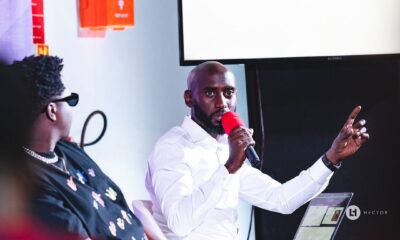
 ARTICLES6 months ago
ARTICLES6 months agoElevate Your Music Career: Join AUMEX’s Essential Branding and Marketing Masterclass
-
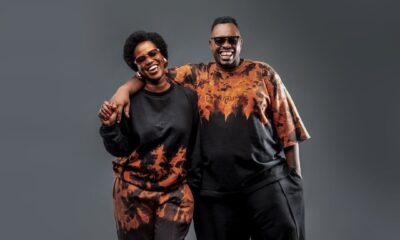
 ARTICLES6 months ago
ARTICLES6 months agoBrian Babu and Regalia Apparel Launch Unisex ‘Uwili’ Capsule Collection
-
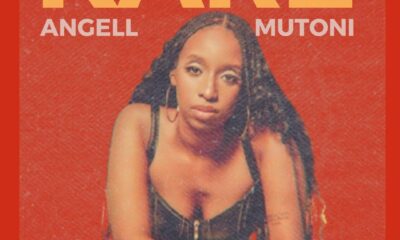
 ARTICLES4 months ago
ARTICLES4 months agoAngell Mutoni Drops Bold New Single “Kare” Ahead of Debut Album
-
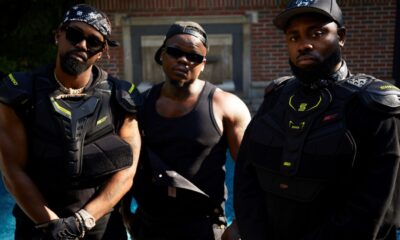
 ARTICLES4 months ago
ARTICLES4 months agoKJ Spio, Harmonize & Konshens Unite for ‘Messi
-
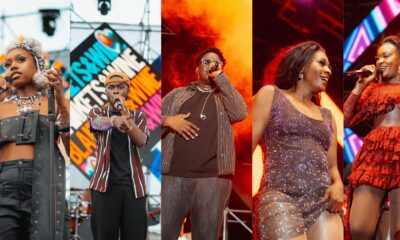
 ARTICLES6 months ago
ARTICLES6 months agoAn Introvert’s First Dive into Blankets & Wine.
-
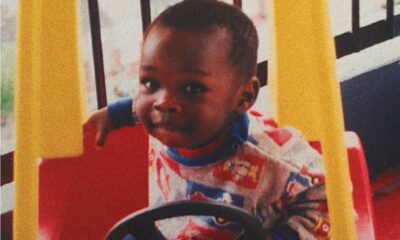
 ARTICLES4 months ago
ARTICLES4 months agoBreaking the Mold: GrG’s Tumenya Mateeka.
-
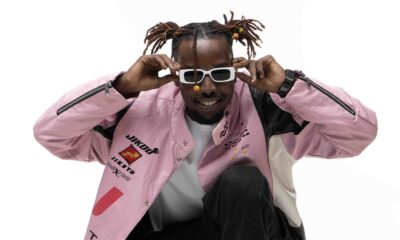
 ARTICLES6 months ago
ARTICLES6 months agoREVIEW: Kohen Jaycee – RWEBEMBERA – A Full Course Meal!
-

 ARTICLES7 months ago
ARTICLES7 months agoSpotify Masterclass Debuts in Uganda: A Game-Changer for Local Music and Artists.




